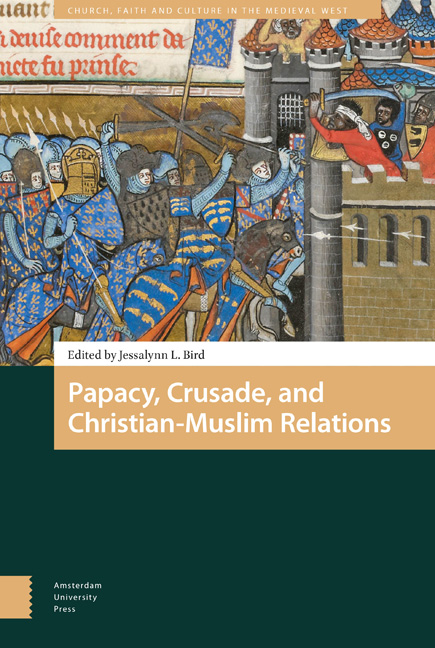3 - Preambles to Crusading: the Arengae of Crusade Letters Issued by Innocent III and Honorius III
Published online by Cambridge University Press: 22 December 2020
Summary
Abstract
This chapter analyses a sample of arengae (preambles) from the letters concerning the Holy Land crusades issued by Innocent III and Honorius III. It compares arengae from the letters of these popes concerning their accession to the papal throne and their calls to crusade as expressed in their encyclical letters. This study demonstrates that, despite drawing upon similar biblical imagery, both popes articulated discrete conceptions of their authority and employed differing theological frameworks within which to situate crusading to the Holy Land. The present chapter thus not only takes James Powell's findings on the different outlooks of the two popes a step further, but also contributes to the scholarship on arengae by arguing that Innocent and Honorius each attributed great importance to composing bespoke preambles for their curial letters concerning the Holy Land crusades rather than emphasising continuity with their papal predecessors by copying their arengae.
Keywords: Pope Innocent III, Pope Honorius III, crusades, arengae, papal letters, theology
In an article published in 1977, James Powell argued that the use by Honorius III (1216–27) of the pastor bonus sermons of his immediate predecessor, Innocent III (1198–1216), revealed important differences in their conceptionsof papal authority. The impact of his argument was partly to dismantle the pervasive historiographical perception of Honorius as the less than original continuator of Innocent's policies, who was considerably overshadowed by his great predecessor. Powell also demonstrated the rich pickings on offer to those with sufficient courage to take up the study of papal theology as well as to those attempting to contextualize diplomatic and chronicle evidence. Yet notwithstanding Powell's academic leadership, the theological sources for the thirteenth-century papacy are mostly still waiting to be tapped. In common with papal sermons, the arengae or preambles to papal letters are complex but extremely valuable sources for papal theological positioning and are themselves of intrinsic worth in the study of diplomatic practice and papal authority.
The arenga was the rhetorical preamble which served as the opening clause in an official letter (although it should be noted that not all papal letters contained an arenga). It set out the pope's authority to decide on the matters to which a letter pertained and was designed to impress the recipient of the letter.
- Type
- Chapter
- Information
- Papacy, Crusade, and Christian-Muslim Relations , pp. 63 - 78Publisher: Amsterdam University PressPrint publication year: 2018



